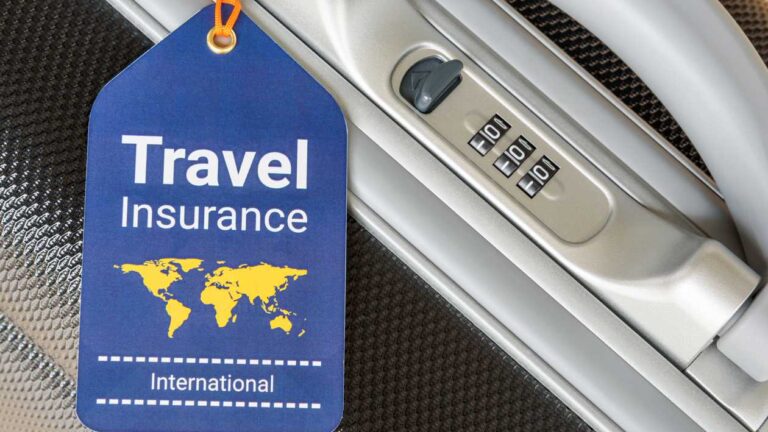Different types of insurance which are life, health, auto, home, etc in insurance plays a pivotal role in mitigating financial risks and providing peace of mind to individuals and businesses alike. It is a contractual arrangement where an entity, typically an insurance company, agrees to provide financial protection against specified losses or risks in exchange for regular premium payments. In this comprehensive essay, we will delve into different types of insurance, including life insurance, health insurance, auto insurance, home insurance, and more, elucidating their significance, key features, and the benefits they offer.
Life Insurance
Life insurance is designed to provide financial support to the beneficiaries of the insured person upon their death. It comes in various forms:
- Term Life Insurance: This type of policy offers coverage for a specific term, typically 10, 20, or 30 years. If the policyholder dies within this term, the beneficiaries receive the death benefit. Term life insurance is known for its affordability, making it an attractive choice for young families.
- Whole Life Insurance: Whole life insurance, also referred to as permanent life insurance, provides lifelong coverage. In addition to the death benefit, it accumulates a cash value over time, which can be borrowed against or withdrawn.
- Universal Life Insurance: Universal life insurance is flexible, allowing policyholders to adjust premium payments and death benefits. It combines a death benefit with a cash value component, offering potential investment opportunities.
- Variable Life Insurance: This policy permits policyholders to invest their premiums in various investment options, such as stocks and bonds. The cash value and death benefit fluctuate based on the performance of these investments.
Health Insurance
Health insurance is essential for covering medical expenses and ensuring access to quality healthcare. It can be categorized into:
- Private Health Insurance: Private health insurance plans are offered by private companies and are often provided as part of an employment package. They cover a range of medical expenses, including doctor visits, hospital stays, and prescription medications.
- Public Health Insurance: Public health insurance is typically provided by the government and includes programs like Medicaid (for low-income individuals) and Medicare (for seniors and some disabled individuals). These programs aim to ensure that vulnerable populations have access to necessary healthcare services.
- Health Maintenance Organization (HMO): HMOs require policyholders to choose a primary care physician (PCP) and seek referrals for specialist care. They often have lower premiums and out-of-pocket costs but limited provider networks.
- Preferred Provider Organization (PPO): PPOs offer more flexibility in choosing healthcare providers and specialists without referrals. However, they tend to have higher premiums and out-of-pocket expenses.
- High Deductible Health Plan (HDHP): HDHPs come with higher deductibles and lower premiums. They are often paired with Health Savings Accounts (HSAs) to help individuals save for medical expenses tax-free.
Auto Insurance
Auto insurance is a legal requirement in many places, designed to protect drivers and vehicle owners from financial liabilities associated with accidents. Types of auto insurance include:
- Liability Insurance: Liability insurance covers the cost of damages to other people’s property and medical expenses if you’re at fault in an accident. It is typically mandated by law.
- Collision Insurance: Collision insurance covers the cost of repairing or replacing your vehicle if it is damaged in an accident, regardless of who is at fault.
- Comprehensive Insurance: Comprehensive insurance covers non-collision-related damages, such as theft, vandalism, natural disasters, or hitting an animal.
- Uninsured/Underinsured Motorist Coverage: This coverage protects you if you’re involved in an accident with a driver who doesn’t have insurance or doesn’t have enough coverage to pay for your damages and medical expenses.
- Personal Injury Protection (PIP): PIP covers medical expenses and, in some cases, lost wages for you and your passengers, regardless of who is at fault in the accident.
- Gap Insurance: Gap insurance is often used for leased or financed vehicles. It covers the difference between the vehicle’s current value and the amount you owe on your lease or loan if your car is totaled.
Home Insurance
Home insurance, also known as homeowner’s insurance, is crucial for protecting your home and its contents. It includes:
- Dwelling Coverage: This component of home insurance covers the cost of repairing or rebuilding your home if it is damaged by covered perils, such as fire, vandalism, or severe weather.
- Personal Property Coverage: Personal property coverage insures your belongings, such as furniture, electronics, and clothing, in case they are stolen or damaged by covered events.
- Liability Coverage: Liability coverage protects you in case someone is injured on your property, and you are found legally responsible. It covers medical expenses and legal fees.
- Additional Living Expenses (ALE) Coverage: ALE coverage reimburses you for additional costs like temporary housing and food if you cannot live in your home due to covered damage.
- Flood Insurance: Standard home insurance policies typically do not cover flood damage. Therefore, homeowners in flood-prone areas often purchase separate flood insurance through the National Flood Insurance Program (NFIP) or private insurers.
- Earthquake Insurance: Earthquake insurance is essential for homeowners in earthquake-prone regions, as it covers damage caused by seismic activity.
Travel Insurance
Travel insurance is designed to protect travelers from unexpected events while away from home. It includes:
- Trip Cancellation Insurance: This coverage reimburses non-refundable expenses if you have to cancel your trip due to unforeseen circumstances like illness, death in the family, or a natural disaster.
- Travel Medical Insurance: Travel medical insurance covers medical expenses while traveling, including doctor visits, hospital stays, and emergency medical evacuation.
- Baggage and Personal Effects Insurance: This type of insurance reimburses you for lost, stolen, or damaged luggage and personal belongings during your trip.
- Rental Car Insurance: Rental car insurance provides coverage for damage to or theft of a rental car while you’re using it.
- Cancel for Any Reason (CFAR) Insurance: CFAR insurance offers the broadest coverage, allowing you to cancel your trip for any reason. However, it is more expensive than standard trip cancellation insurance.
Business Insurance
Business insurance is crucial for protecting enterprises from various risks. It includes:
- Commercial Property Insurance: This coverage protects business property, including buildings, equipment, and inventory, against damage or theft.
- General Liability Insurance: General liability insurance covers legal expenses and damages if a third party sues your business for injuries or property damage.
- Professional Liability Insurance: Also known as errors and omissions (E&O) insurance, this policy protects professionals, such as doctors, lawyers, and consultants, from liability claims related to professional errors or negligence.
- Workers’ Compensation Insurance: Workers’ compensation insurance provides medical benefits and lost wages to employees who are injured on the job. It also protects employers from lawsuits related to workplace injuries.
- Business Interruption Insurance: Business interruption insurance helps cover lost income and expenses if your business is temporarily unable to operate due to a covered event, such as a fire or natural disaster.
- Cyber Liability Insurance: This insurance protects businesses from the financial impact of data breaches and cyberattacks, including the costs of notifying affected individuals and legal fees.
Pet Insurance
Pet insurance has gained popularity in recent years as more people view their pets as members of the family. It covers veterinary expenses, including:
- Accident-Only Coverage: This type of pet insurance covers injuries resulting from accidents, such as car accidents or falls.
- Illness Coverage: Illness coverage includes treatment for various medical conditions, including infections, cancer, and chronic illnesses.
- Wellness Coverage: Wellness coverage may cover preventive care, such as vaccinations, annual check-ups, and dental cleanings in Different types of insurance: life, health, auto, home, etc in insurance plays a pivotal role in mitigating financial risks and providing peace.
- Hereditary and Congenital Conditions: Some policies cover hereditary and congenital conditions, which are conditions that pets are born with or inherit.
- End-of-Life Coverage: End-of-life coverage may include euthanasia, cremation, or burial expenses.
Specialty Insurance
There are also various specialty insurance products tailored to unique needs:
Wedding Insurance
Wedding insurance protects couples from financial losses if unforeseen events disrupt their wedding plans. It can cover issues like vendor no-shows, extreme weather, illness, or injury to the bride, groom, or key guests.
Event Insurance
Event insurance covers various risks associated with hosting events, such as parties, concerts, and corporate functions. It can include coverage for property damage, liability, and cancellation.
Collectibles Insurance
Collectibles insurance protects valuable collections, such as art, antiques, rare coins, or stamps, against loss, theft, or damage. It ensures that collectors are adequately compensated for their loss.
Kidnap and Ransom Insurance
Kidnap and ransom insurance provides coverage for individuals, families, or organizations against the financial consequences of kidnapping, extortion, or hostage situations.
Aircraft Insurance
Aircraft insurance covers private and commercial aircraft, including airplanes and helicopters. It protects against damages, liability, and accidents involving aircraft.
Conclusion on Different types of insurance
Insurance is an essential aspect of modern life, providing financial security and peace of mind in various situations. The different types of insurance, from life and health insurance to auto, home, travel, business, pet, and specialty insurance, offer protection against a wide range of risks and uncertainties. Choosing the right insurance policies for your individual or business needs is crucial to safeguarding your financial well-being and ensuring you are prepared for life’s unexpected challenges. While insurance may involve costs in the form of premiums, the potential benefits far outweigh the expenses, making it a vital component of financial planning and risk management.






